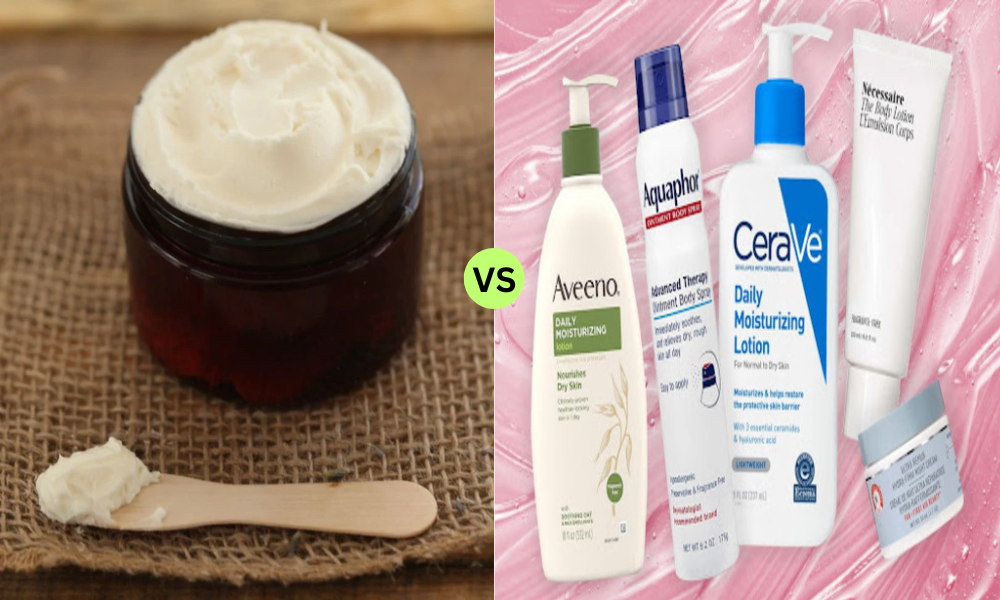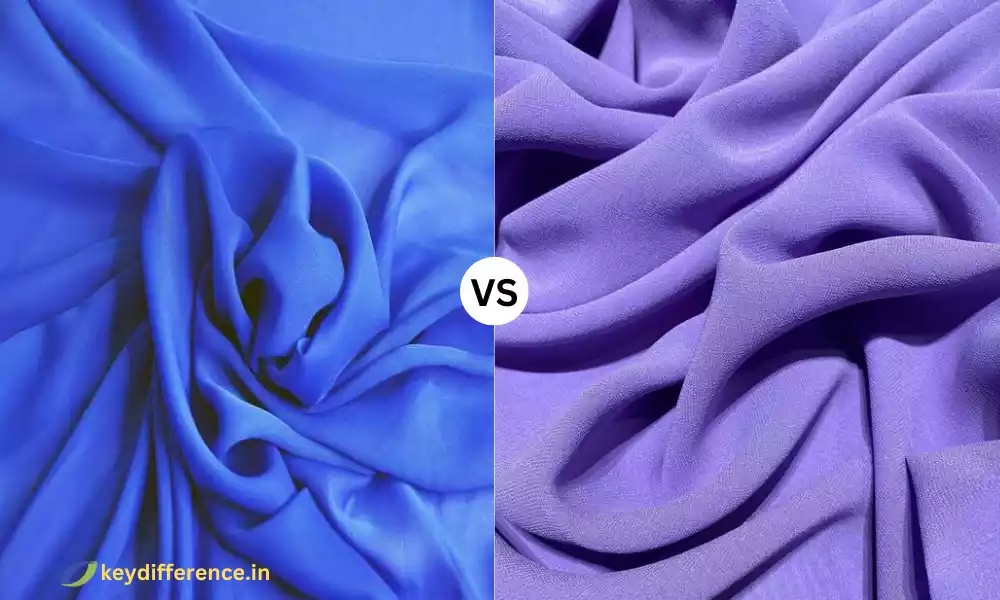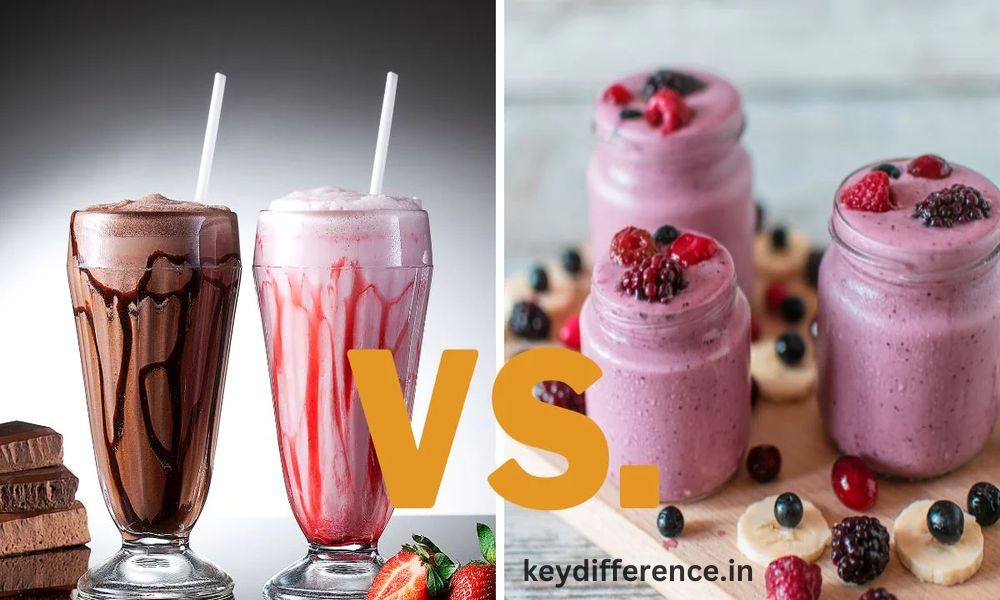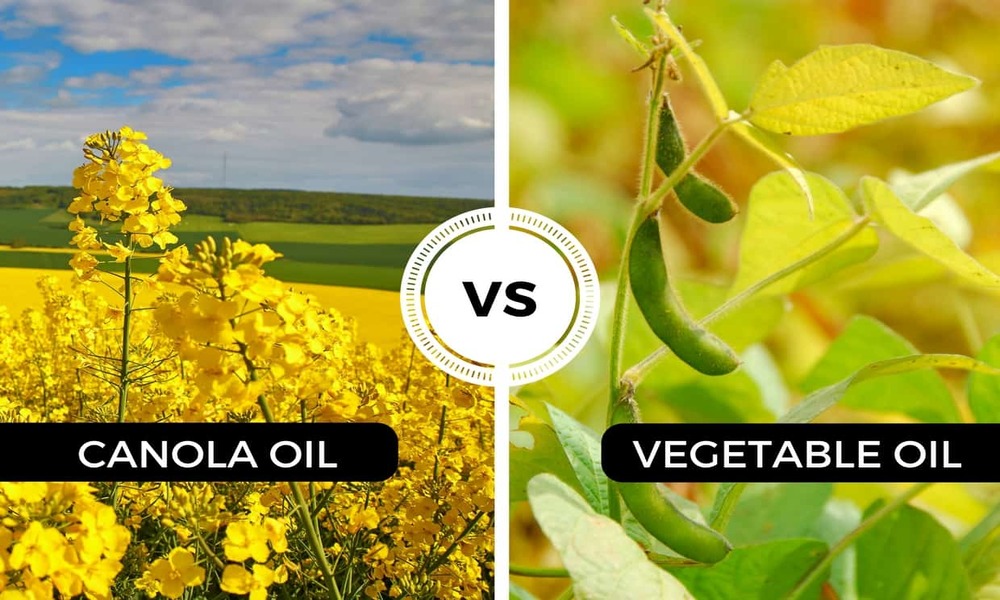We will examine the main differences between Body Butter and Body Lotion of the most popular products for skin care such as body butter and lotion. They both serve the same objective of moisturizing your skin, however, they differ in many aspects from their ingredients and texture to their best uses and scent choices.
Understanding the differences between these products will aid you in making informed decisions about your skincare routine based on your individual requirements and preferences.
What is Body Butter?
Body Butter is a rich and rich skin care product that is made up of nourishing oils as well as butter like cocoa butter and shea butter and carrier oils such as coconut oil or Jojoba oil. It’s designed to offer intensive hydration and moisture on the face.
Body butter is renowned for its smooth texture and capacity to create an ointment-like barrier to the skin’s surface. This makes it particularly beneficial for sensitive, dry as well as mature or dry skin.
It is typically used during the colder months or as a specific treatment for areas that are prone to roughness, like knees and elbows. Body butter can be also scented with essential or natural oils, resulting in a pleasing and personalized scent.
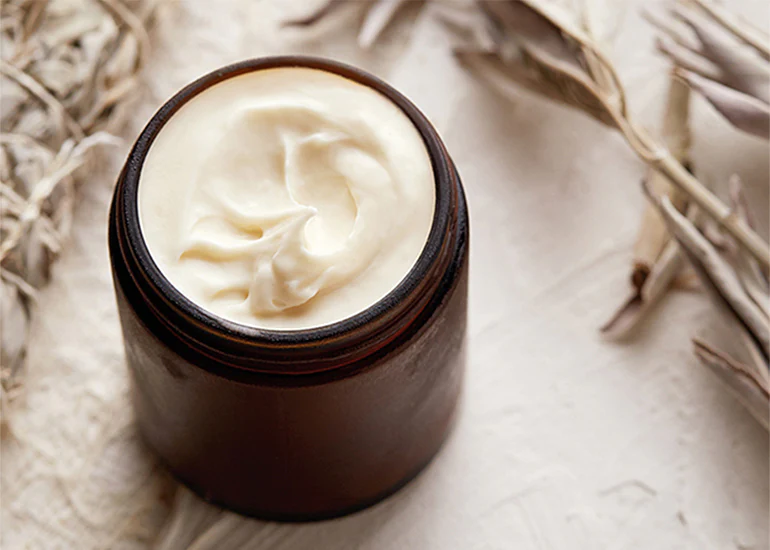
What is Body Lotion?
A body lotion can be described as a skin care product designed to moisturize and moisturize the skin. It usually consists of a water-based product infused with emollients (such as minerals oil and Glycerin) and Humectants (like aloe vera) as well as preservatives to ensure that the product remains in a stable state. Body lotions are more delicate and softer consistency in comparison to body butter and are formulated for everyday usage.
They’re appropriate for all types of skin and are ideal for dry to normal skin. Body lotions are renowned for their speedy absorption, which leaves the skin feeling soft and less oily. They’re typically offered in a range of scents and are typically sold in bottles or dispensers.
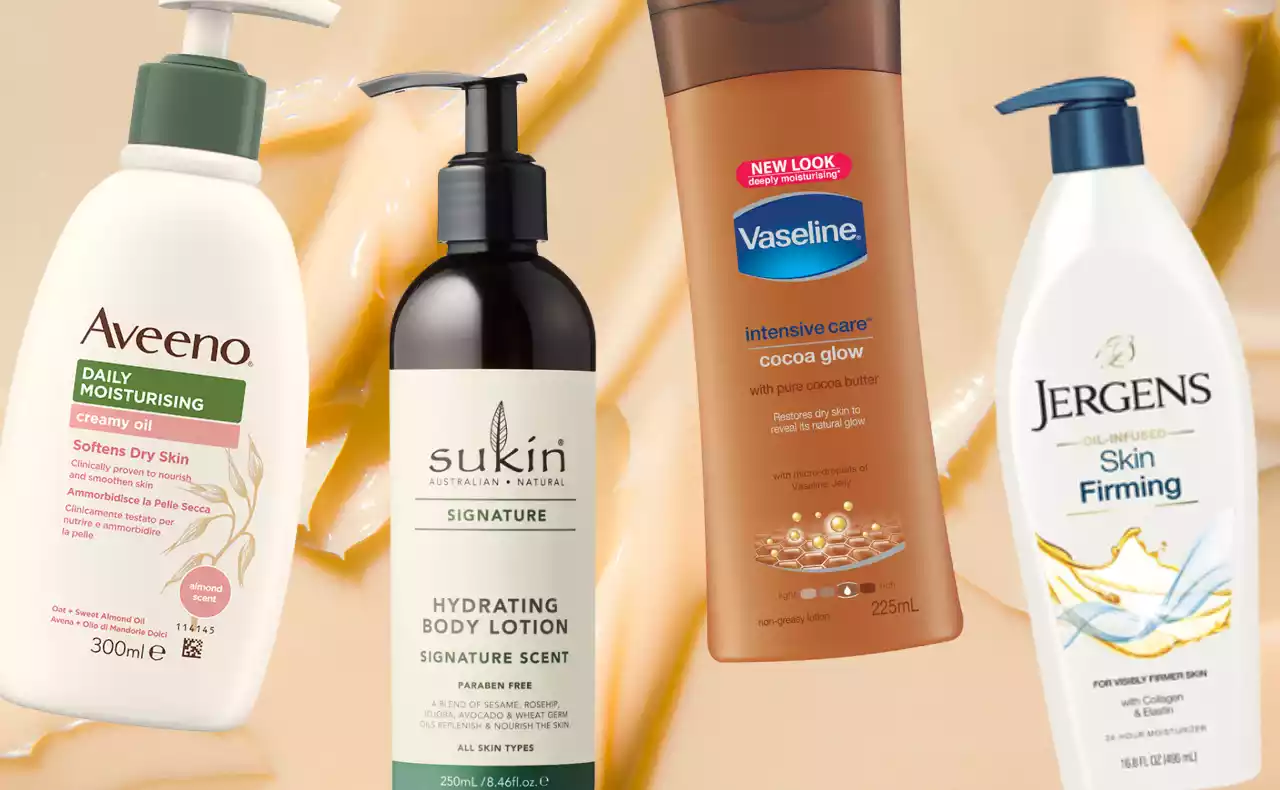
Comparison Table of Body Butter and Body Lotion
Here’s a comparison table highlighting the key differences between body butter and body lotion:
| Aspect | Body Butter | Body Lotion |
|---|---|---|
| Composition | Primarily made of thick butter and oils | Water-based with emollients and humectants |
| Texture and Consistency | Thick, rich, and creamy | Lighter and thinner, spreads easily |
| Moisturizing Properties | Intense hydration, suitable for very dry skin | Light hydration, suitable for normal to mildly dry skin |
| Skin Types and Uses | Ideal for dry, sensitive, or mature skin | Suitable for all skin types, everyday use |
| Seasonal Preference | Often used in colder weather or for targeted treatment | Suitable for warm weather and regular use |
| Fragrance and Customization | Natural scents, customizable with essential oils | Wide range of commercially available fragrances |
| Shelf Life and Packaging | Longer shelf life due to low water content | Shorter shelf life due to higher water content |
| Price Range | Tends to be more expensive due to the rich ingredients | Generally more budget-friendly |
This table provides a quick overview of the primary distinctions between body butter and body lotion, helping you make an informed choice based on your skincare needs and preferences.
Importance of skincare products
Skincare products play a vital function in maintaining healthy and vibrant skin. Their value extends far beyond the realm of cosmetics and covers various aspects of general well-being.
- Protection from environmental factors: Skincare products, such as moisturizers and sunscreen provide a shield against damaging environmental elements such as pollution, UV radiation, and extreme weather conditions. This helps to prevent skin aging and damage.
- Hydration: Hydration of the skin properly is crucial for maintaining its elasticity, and also preventing dryness, flakiness, and discomfort. Products that moisturize, such as creams and lotions can help keep the skin properly well-hydrated.
- Age-Defying: Many skincare products include antioxidants, retinoids, as well as proteins that fight age-related signs, like wrinkles, fine lines wrinkles, and age spots. They boost collagen production as well as skin cell turnover and give you younger-looking skin.
- Treatment of skin conditions: Skincare products are typically designed to treat specific skin issues including acne, eczema rosacea hyperpigmentation, and more. These products are able to help ease signs and conditions, as well as improve overall health on the face.
- Enhancing Confidence: Clear, healthy, and glowing skin can increase self-esteem and confidence. A routine of skin care can be a chance to take care of yourself and aid in confidence in your self-image.
- Prevention of Skin issues: Regular use of skin care products can help prevent the most common skin issues, like acne breakouts, blackheads, and clogged pores. Exfoliants and cleansers are a good example. They can keep your skin clear and clean.
- Enhanced Comfort: Products for skin care such as balms and creams that soothe are able to soothe burns on the skin and redness, increasing comfort and decreasing discomfort.
- Maintaining the function of the skin barrier: A healthy skin barrier is crucial to protect your body from infections and prevent excessive loss of moisture. Skincare products aid in maintaining and repairing the barrier.
- Individualized care: The way you treat your skin isn’t universally applicable. There are a variety of products to fit various skin types and issues. The ability to customize your skincare routine means that you are addressing your specific requirements.
- General Well-Being: Your routines with your skin can turn into self-care as well as relaxation. A few minutes every day to look after your skin could contribute to a feeling of relaxation and relaxation.
Skincare products are crucial to maintaining and improving the appearance and health that your face. They guard against environmental ravages as well as hydrate and tackle specific issues and aid in both physical and mental health. A consistent and well-planned skincare regimen can help improve your overall health of the skin and increase your overall health.
Ingredients of body lotion
The typical body lotion contains a combination of ingredients to moisturize, hydrate as well and nourish skin. Although specific formulations can differ between brands and different products, these are the most common ingredients that are commonly found in lotions for your body:
- Hydration: The primary ingredient in the majority of body lotions, it serves as the basis for the product and also provides moisture on the face.
- Emollients: Emollients can be described as ingredients that aid in locking in moisture and build an effective barrier to protect the skin. The most common emollients are:
- Glycerin
- Mineral oil
- Petrolatum
- Shea butter
- Cocoa butter
- Squalane
- Jojoba oil
- Coconut oil
- Olive oil
- Humectants: Humectants bind moisturizing properties to your skin, and help keep the skin moisturized. Common humectants found in lotions for body use include:
- Hyaluronic acid
- Aloe vera gel
- Sorbitol
- Honey
- Urea
- Thickeners: Thickeners can be added in order to provide lotion with its desired consistency. The most common thickeners are a range of waxes like candelilla wax or beeswax and plant-derived thickeners such as xanthan gum and cellulose.
- Preservatives: The inclusion of preservers helps prevent the growth of mold, bacteria, and other microorganisms that can be found in the product. They aid in extending the duration of the shelf-life of the cream.
The most common preservatives are:- Parabens (less frequently employed due to concerns over their safety)
- Phenoxyethanol
- Ethylhexylglycerin
- Potassium sorbate
- Aroma: Many body lotions have added fragrances that provide the scent of a pleasant one. The scents are either natural and derived from essential oils or synthetic.
- Antioxidants: Certain body creams might contain antioxidants such as Vitamin E as well as vitamin C to protect your skin from the oxidative damage that is caused by free radicals.
- Anti-inflammatory Ingredients: In formulations designed for skin that is sensitive or inflamed there are anti-inflammatory ingredients like aloe vera or chamomile extract to calm and soothe the skin.
- Sunscreen ingredients: Some creams that are specially designed, specifically those that are marketed as “sunscreen lotions,” you could find UV-blocking ingredients such as titanium dioxide or zinc oxide to protect against sun damage.
It’s crucial to know that the ingredients listed and their concentrations may differ from one product to the next. If you’re suffering from specific skin problems or sensitivities a great suggestion is to read the label attentively or talk to a dermatologist before selecting the best body lotion that meets your requirements.
Leaves a lighter, less greasy feel
The expression “leaves a lighter, less greasy feel” is commonly utilized to define the appearance and texture of skin care products, especially creams and lotions contrasted with oils that are heavier or more greasy such as body butters or oils. What does it mean?
- A lighter feel: When a skincare product has a “lighter” feel, it signifies that it doesn’t feel heavy or heavy on the skin. It’s generally more easy to spread and absorbs faster. This characteristic is liked by a lot of people, particularly in humid or hot environments, since it does not weigh down the skin or make it feel tight.
- Less Greasy: A product that has a “less greasy” feel means that it does not leave an oily or shiny substance on your skin. It absorbs more easily and leaves the skin looking semi-matte or matte rather than shiny or slick. Some people prefer products that have meiosis that are less oily for use in the daytime or in situations where they do not wish to look oily.
Its “lighter, less greasy feel” is a desired feature for facial and body lotions as well as moisturizers because it provides moisture and hydration without the irritation of thick or sticky skin. It is also essential for people who have combination or oily skin who are looking to minimize the production of oil. It also allows for more easily applying makeup to the skin that is moisturized.
Suitable for normal to mildly dry skin
The expression “suitable for normal to mildly dry skin” is typically used to describe products for skin care such as cleansers and moisturizers. It is a reference to the type of skin the product is formulated for to benefit the most. It is a way to define:
- Normal Skin: The normal skin type is usually balanced, not overly oily or overly dry. It usually is healthy looking with a minimal amount of blemishes or dry patches. Normal skin types often require basic skin care maintenance like cleansing and moisturizing, but without special products.
- Mildly dry skin: Dry skin can be prone to occasional dryness, flakiness, or tightness, especially when it is triggered by environmental factors such as cold temperatures and low levels of humidity. The skin type retains some moisture, however, it could benefit from additional moisture to keep its appearance and appearance.
When a product is described by the word “suitable for normal to mildly dry skin,” it signifies that the formula is intended to offer moderate moisture without being too thick or heavy. These products are designed to help maintain the natural balance of skin for people with skin conditions that fall in this category. They typically have a light smooth texture that is non-greasy and absorbs quite rapidly into the skin.
Remember that skin types are different and what is ideal for one person might not work for someone else. Factors such as climate genetics, age, as well as lifestyle all affect the condition of your skin.
It is therefore important to think about your skin’s specific requirements when choosing skincare products and be flexible in changing your routine as the needs of your skin change over time. If you are concerned regarding your skin type or particular skin issues, speaking with a dermatologist will provide you with specific advice and recommendations for products.
May need reapplication throughout the day
The expression “may need reapplication throughout the day” is a reference to products for skincare or cosmetics that might require a second application or touch-ups throughout the duration of the day to keep their effectiveness, or to achieve the desired look. This is what it means:
- Limited Lifetime: Some skincare or cosmetic products, including sunscreens, moisturizers, lip balms, or cosmetics such as lipstick and foundations, could have a short duration of efficiency or use. That means that their effects and appearance could decrease over time due to elements like exposure to the elements and the production of natural oils for the skin or physical activity.
- Environmental Factors: Environmental conditions like the sun’s exposure, wind’s humidity, and temperature fluctuations may affect the durability of some products. For instance, sunscreens may require reapplication following sweating or swimming, while lip balms may need to be reapplied in windy or dry conditions.
- Activity Level: The amount of activity depends on the degree of physical activity and facial movement, certain products such as makeup can be more difficult to remove. For instance, the application of makeup to areas that undergo frequent motion, like the eyes or mouth could require reapplication after drinking, eating, or even talking.
- Personal Preferences: Some individuals prefer the appearance and feel of freshly applied makeup or skincare products, and prefer to apply these products throughout the day in order to maintain a certain style or degree of satisfaction.
The requirement for reapplications is different for each person and the product. It’s essential to read product labels and follow suggested usage guidelines. Furthermore, the type of skin, climate, and the particular formulation of the product may affect the frequency at which reapplications are required.
An oil-based body lotion that is moisturizing for dry skin may have to be applied a second time if your skin starts feeling dry. On the other hand, an extremely long-lasting, transfer-resistant foundation could require fewer applications.
The decision to apply a new product will depend on your own individual preferences as well as the specific objectives you’re aiming for with your routine of skincare or makeup.
Commercially produced with various scent options
The expression “commercially produced with various scent options” refers to cosmetics or skincare products that are made and available for purchase on the market for consumers with a variety of scents or fragrances to pick from. What does this mean?
- Commercially produced: This term indicates that the product is produced in a larger quantity by companies to sell to the public. They are usually sold in shops, online, and through retailers authorized by the government.
- Many scents: Many skincare and cosmetic items, including body washes, body lotions as well as perfumes, and certain facial products come with a variety of scent choices. The scents available can vary greatly, and include a range of fragrances, ranging from floral to fruity to woody and herb. Certain products might even have unscented or fragrance-free alternatives for those who have sensitivities to fragrances.
The availability of different scents allows consumers to pick scents that are in line with their preferences and tastes. It also gives the opportunity for people to choose scents that fit with their mood or season.
Remember that the scents are different for various brands and products. Furthermore, some individuals may prefer non-scented or fragrance-free products particularly those with allergic skin or have allergies. When choosing a product with a range of fragrance options, it’s important to take into consideration your personal preference for scents and any possible sensitivities to scents.
Similarities Between Body Butter and Body Lotion
Body lotion and body butter are both products for skincare that are designed to offer hydration and moisture for the face.
Despite their distinct textures and the main ingredients they contain they have a lot in common:
- Hydration: The body butter as well as the body lotion are made to provide essential moisture to your skin. They can prevent flakiness, dryness, and discomfort by replenishing your skin’s moisture barrier.
- Skin Softening: These two products make skin feel more supple and smoother, which improves its appearance and texture.
- Everyday Use: Butter for the body and body lotions can be used in a daily skincare routine to ensure good health of the skin. They can be used for daily use after showering or bathing.
- Skin Comfort: Both products offer relief from common skin problems like itching or tightness, particularly during severe or dry weather conditions.
- The fragrance options are: Numerous body creams and lotions for the body come in a wide range of fragrances which allows users to select the scent that best suits their tastes or moods.
- Easy application: Both can be applied with ease to the skin generally by gently massaging or rubbing the cream onto its surface.
- packaging: These are usually offered in handy packaging, for example, bottles that come with pumps as well as squeeze tubes, which makes them convenient to use and suitable for travel.
- Modifications: Certain body lotions or body lotions can be made custom-made using additional ingredients, for example, oil extracts or essential oils to treat specific skin issues or to enhance the scent.
- The Protective Barrier: Although body lotion is renowned for forming an extra-thick barrier that is a barrier to the outside, both body butter and body lotion aid in creating a protective layer on the skin’s surface. This will prevent the loss of moisture and shield your skin against environmental stresses.
- Available: Both products are easily accessible in stores as well as online which makes them available to a wide range of users.
Despite these similarities, it’s important to be aware that the main differences between body butter and lotions for the body are in their texture, ingredients, and the suitability of each for specific skin types and requirements. Thus, the decision to choose between these two products is based on personal preferences for skin and needs.
Conclusion
Body butter and lotion are two products for skincare that share the same purpose of providing hydration and moisture for the face. Although they share a number of similarities, such as their capacity to soften skin and provide various scent choices, their distinct quality and suitableness for certain types of skin and conditions must be taken into consideration when choosing between their respective products. Which one you choose to use, body lotion or body butter is based on your individual preferences and needs for your skin.

